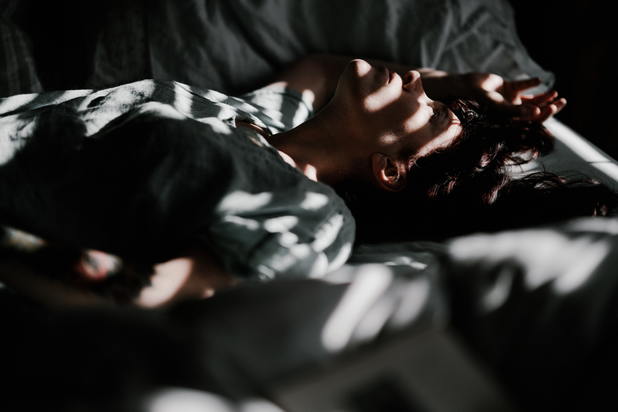As we have all been working to slow the spread of COVID-19, nationwide stay-at-home orders are still in effect. The disruption of our daily routines and work schedules have caused many unexpected realities that have now become our new normal—at least for the time being. One such reality is the loss of quality sleep or even insomnia in severe cases.
Quality sleep is essential for optimal physical and mental health. When we lack proper sleep it can impair our focus and concentration, lead to weight gain, increase stress and anxiety, and even contribute to motor vehicle accidents.
Getting a good night's sleep can be challenging if you are in the early stages of recovery. But now, amid a global pandemic, it has become an ongoing struggle for many. The increased stress and anxiety we are enduring has a direct impact on our sleep.
Pandemic Induced Insomnia
According to Harvard specialists who research the recent developments related to the COVID-19 outbreak, "sleep is emerging as the latest casualty." They note the psychological and emotional effects of the pandemic are adding up and "too many sleepless nights can aggravate both physical and mental health problems."
Untreated chronic insomnia can lead to serious health conditions including diabetes, heart disease, and high blood pressure, as well as an elevated risk of Alzheimer's disease. Specialists also reported mental health conditions are worsened by not getting enough quality, uninterrupted sleep.
Health experts are concerned that pandemic-induced insomnia may set off a nationwide mental health crisis as people's levels of anxiety and stress soar. The pandemic has touched all aspects of our lives including our moods and tolerance to stress. The current uncertainty is leaving many of us struggling to cope and get a good night's rest.
People are also reporting having more nightmares and vivid dreams during the pandemic. Insomnia and increased stress can be a precursor to developing depression and other mental health conditions.
A report published in April by Express Scripts shows an increase of 21 percent in prescriptions filled to treat insomnia, anxiety, and depression between February and March 2020.
A spike in the numbers occurred in the week of March 15th. This was the same week the World Health Organization (WHO) declared COVID-19 a pandemic, per the report.
If your sleeping schedule has been disrupted or you're experiencing Pandemic-induced insomnia, you may need to make adjustments to your sleep hygiene practices. For prolonged episodes of insomnia, medication or counseling may be needed.
Tips For Sleeping Better
The National Sleep Foundation offers updated guidelines for sleeping well during this current time of crisis:
- Wake up at the same time each morning (try to resist the snooze button) and go to bed at the same time each night
- Establish a "wind-down" period in the evening before bed and include relaxing activities such as light stretching, reading and silencing electronic devices
- Avoid napping during the day
- Reserve your bedroom for sleep
- Get some daily exercise (even just walking)
- Limiting news and social media especially before bed
- Spend some time outside every day in the natural light
- Limit coffee, nicotine and other stimulants especially late in the day
- Refrain from heavy (especially high-fat) meals right before bed (causing indigestion)
Special Considerations
If your insomnia has become chronic or unmanageable or if you notice any symptoms indicating a more serious sleep disorder, consult your doctor. One such condition called sleep apnea causes a person to stop breathing during their sleep and deprives the brain of oxygen. Untreated sleep apnea carries serious health risks including heart disease and stroke.
If you snore excessively, are tired or require naps during the day, waking up at night gasping for air—these can all be signs of sleep apnea.
Other sleep disorders such as restless leg syndrome (RLS) and narcolepsy (falling asleep during the day) can also rob you of sleep.
Your doctor can perform a sleep study to rule out any serious causes of prolonged insomnia not directly related to the current pandemic. It's also important to find out if any underlying condition could be exacerbating Pandemic-induced insomnia.
This is a rough time and we're all doing our best. You may find this period to be especially challenging for your recovery. This is a good time to return to the basics of recovery and not to demand too much of yourself. On some days, just getting a great night's sleep is a huge achievement.
If you or someone you know is seeking professional help, please visit our directory of mental health resources or call 800-772-8219 to speak to a treatment specialist.








